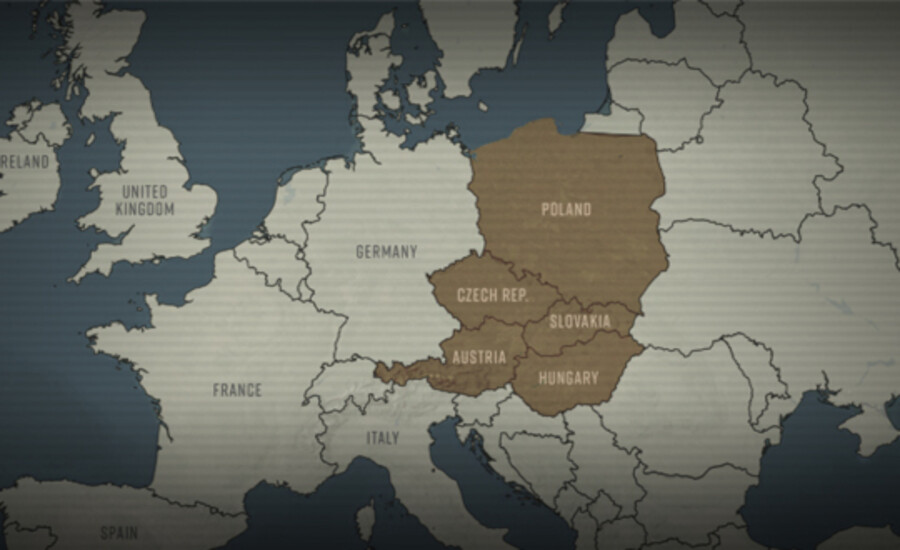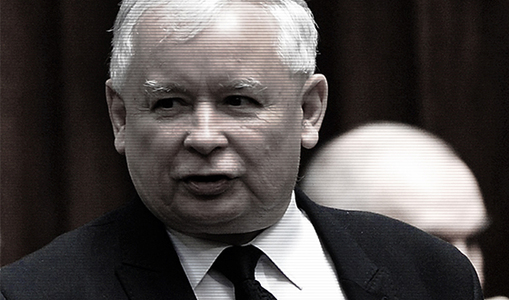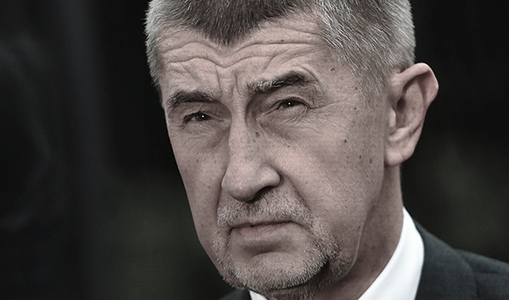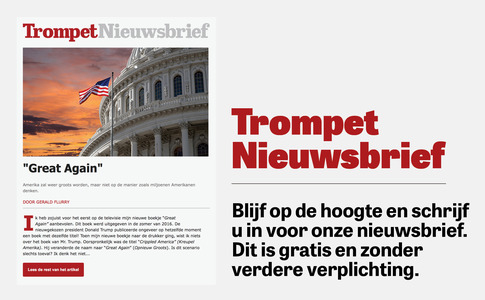
Introducing Europe’s Eastern Strongmen
European Union bureaucrats are struggling to deal with a new type of leader. He is not sophisticated, multicultural and managerial. He is not soft, consensus-building and wary of giving offense. He is strong. He is patriotic. He is decisive. He is everything the European Commission in Brussels is not. European bureaucrats hate him. Yet this type of leader is emerging in country after country. Whether bureaucrats like it or not, these strongmen are Europe’s future.
viktor orbán · hungary
Europe’s New Standard

Viktor Orbán (
Sean Gallup/Getty Images)
Hungary has been the trailblazer for this trend. Viktor Orbán first became prime minister from 1998 to 2002. But it’s his second incarnation that is more significant. In 2010, in the midst of a global financial crisis, he led his Fidesz party to an overwhelming victory.
His method of governing has become the standard strongman template—the comparison used to judge Europe’s other strong leaders.
Orbán’s guiding principle is simple: Hungary first. He pursues his country’s national interest and pays little lip service to the European Union, consensus-building and multilateralism. Orbán was putting Hungary first long before Donald Trump came along. The EU encourages its member countries to share the burden, to all join in and accept migrants, suffering individually for the greater good. Orbán is having none of it. “To defend borders is a national responsibility,” he said last June. “As a state, you have to protect your own borders. I don’t believe in a European solution.”
Orbán has also concentrated political power in his office. He bluntly called checks and balances “a U.S. invention” that doesn’t work in Europe. This isn’t just talk: He has pushed through changes to the Hungarian Constitution to remove restrictions on his power over the rest of the government.
He also increased the government’s power over Hungary’s people. He has driven out foreign businesses and renationalized a host of industries including natural gas, electricity, pension funds, water, recycling and many banks.
Orbán has also shifted his politics to the right, borrowing ideas and language from Hungary’s far-right Jobbik party.
He is one of Europe’s most outspoken Christian leaders. He talks about “creating a Christian Hungary within a Christian Europe.” His opposition to immigration stems from this Christian identity. In 2015, he said with characteristic bluntness, “I think we have a right to decide that we do not want a large number of Muslim people in our country.”
Orbán calls for a new style of government. In his most famous speech, given in July 2014, he said, “The new state that we are constructing in Hungary is an illiberal state, a non-liberal state. It does not reject the fundamental principles of liberalism such as freedom, and I could list a few more, but it does not make this ideology the central element of state organization, but instead includes a different, special, national approach.”
In his book Orbán: Europe’s New Strongman, Paul Lendvai said Orbán is creating “Hungary’s Führer Democracy.” “After seven continuous years of Fidesz rule and in light of all opinion polls, even Viktor Orbán’s fiercest critics concede that at the age of 53, his position appears impregnable,” he writes. “His unlimited personal power is virtually unchallenged within Hungary, nor is it under threat from the EU.”
Leftists around the world hate what he is doing, and this colors much of their coverage of him. There is a lot of hypocrisy in this reporting. In just about every Western nation, the left fill government jobs with people who agree with them. When Orbán does the same, the left screams blue murder.
It is important to note, though, that few are accusing Orbán of being undemocratic. The fact is, his approach is popular. When times are tough, most are happy with a little less liberty and a little more strength. Too often people look at Orbán through the lens of their own personal ideology. But both sides can agree that Orbán represents a new kind of “strongman democracy.” The historical connotations in the phrase “führer democracy” are unfair. But aside from that, it is a good description of the new Hungary-first regime that Viktor Orbán is building.
jarosław kaczyński · poland
Power Behind The Throne

Jarosław Kaczyński (
Janek Skarzynski/AFP/Getty Images)
Jarosław Kaczyński, along with his twin brother Lech, is another key founder of this new movement.
In 2001 the two of them cofounded the Law and Justice Party in Poland. Jarosław was in power from July 2006 to November 2007, before his party lost its majority in parliament.
They won again in 2015, becoming the first party to win an outright majority in Poland’s post-Communist history. The party now holds both the presidency and prime ministership.
Kaczyński himself holds neither of these positions; he merely leads the party. Yet as the Guardian noted in 2016, “President Andrzej Duda and Prime Minister Beata Szydło are entirely beholden to his patronage.” The Financial Times and Deutsche Welle called him “the most powerful man in Poland.” He is often referred to as the real power behind the throne.
Poles know Kaczyński’s power over the government, and many put their hope in him personally. One common chant at his rallies is “Jarosław save us.”
Kaczyński has moved to reduce checks and balances on the executive branch, to curtail the power of the judges. He also managed to take control of Poland’s public broadcaster from leftists.
His party’s approach is similar to Viktor Orbán’s. His party calls for a “Fourth Republic” to replace Poland’s current system of government. In fact, Kaczyński once openly said he aimed to “bring Budapest to Warsaw”—a promise to copy Orbán’s strategies.
Kaczyński also has the same Christian values. “We want to restore a moral order,” he said. In May 2017, Polish Interior Minister Mariusz Błaszczak said that the presence of the largely Muslim refugee population is a “ticking bomb” in Europe.
Like Orbán, Kaczyński is subject to hysterical criticism from leftists everywhere. And also like Orbán, there’s little or no evidence he is being undemocratic: Many Poles support his consolidation of power, and he is not accused of interfering in elections. Nevertheless, he is a new kind of European leader: a strongman who puts Poland first.
sebastian kurz · austria
The Danube Messiah

Sebastian Kurz (
Thomas Kronsteiner/Getty Images)
In October, new members were inducted into the Strongman Club, including Sebastian Kurz. This 31-year-old wunderkind won Austria’s national elections on October 15 and is working to form a governing coalition.
As of this writing, he has not yet spent his first day in office at the Federal Chancellery, but he already has considerable power due to his election and his authority within his party. When Austrian People’s Party offered him the chairmanship in May, he set conditions. He would only take over if he was granted unprecedented personal authority. He would have power to appoint all the ministers and to nominate candidates for parliament—even if they were from a different party. His party agreed, and he almost single-handedly led them to victory.
In fact, candidates did not stand for the “Austrian People’s Party”; they were on the ballot as members of “Sebastian Kurz’s list.” The new administration will clearly be indebted to Kurz personally.
The European said Kurz was “like a Ferrari among politicians.” Other media call him the “Danube messiah.”
Serving as foreign minister before the election, Kurz almost single-handedly reduced the impact of the migrant crisis. In February 2016, he helped organize the Balkan states to block refugees traveling from Greece and Turkey toward Austria.
Kurz’s manifesto called for a crackdown on “political Islam” and immigration. The Freedom Party of Austria, his likely coalition partner, goes even further, saying that “Islam has no place” in Austria. The platform is clear—and popular: Austria first.
robert fico · slovakia
No To Islam

Robert Fico (
Thierry Charlier/AFP/Getty Images)
Robert Fico is the strongman of Slovakia. He has been the country’s prime minister since 2006 except for a two-year period from 2010 to 2012.
He does not fit on this list quite as comfortably as the others. He is a leftist, but is unafraid of working with the far right. More importantly, he is a nationalist.
His nationalism drives him to stand up to Brussels. And he has become one of Europe’s most outspoken critics of Islam and Muslim refugees. In May 2016, he said, “I do not want to see a Muslim community in Slovakia …. We do not want to change the traditions of this country, which are built on the Christian tradition.”
“Islam has no place in Slovakia,” he said. Slovakia first.
andrej babiš · czech republic
Anti-Establishment Man

Andrej Babiš (
Michal Cizek/AFP/Getty Images)
The second new inductee to the Strongman Club, Andrej Babiš, won the national election in the Czech Republic on October 22 with almost 30 percent of the vote. His nearest rival won only 11 percent.
Like the other strongmen, Babiš ran on an antiestablishment ticket as the leader of the ano party, which is only six years old. “ano” means “yes” in Czech and is also the acronym for Action of Dissatisfied Citizens. Czechs said yes to overthrowing the establishment, empowering a newcomer party with Babiš at the head.
How will Babiš exercise his new power? He has indicated that he wants to dismantle the Czech Republic’s checks and balances, and to abolish the senate and regional government. His platform focused on opposing immigration and reducing European Union influence over Czech affairs. It also focused on him. The bbc’s Rob Cameron wrote, “His message to voters—that he alone could heal the ills of the Czech political and economic system, that he alone could decapitate the hydra of corruption, that he alone could defend Czech national interests—appears to have been heard. They have given him a convincing mandate. He has truly crushed his rivals” (Oct. 22, 2017).
Like many others on this list of strongmen, Babiš openly admires Viktor Orbán. While Orbán puts Hungary first, Babiš will put the Czech Republic first.
Are These Europe’s Kings?
The Trumpet has consistently forecast the rise of a strongman in Germany—a dictatorial king. Many passages in the Bible talk about this king. You can read these in “Wanted: A Leader for Europe! ” from the November-December 2017 issue.
In our free booklet A Strong German Leader Is Imminent , Trumpet editor in chief Gerald Flurry writes: “This soon-coming ruler could literally be called a king. Even if he is not, the Bible gives him that label. When the Bible talks about a king, in most cases it’s saying that this is not a democratic government. Even if he doesn’t have that title, he is going to lead like a king. This vision in Daniel shows that the European empire is about to become a lot more authoritative.”
But the Bible also prophesies that under this man will be a group of strong leaders—a group of kings!
Revelation 17 describes a beast that symbolizes a great European empire. This beast has 10 horns. Revelation 17:12-13 states that “the ten horns which thou sawest are ten kings, which have received no kingdom as yet; but receive power as kings one hour with the beast. These have one mind, and shall give their power and strength unto the beast.”
This prophecy describes a modern European power that will be ruled by 10 similar kings, authoritarian leaders who have power—which they give to an even stronger king.
Notice that these men have “one mind.” They think alike.
The first few verses of Revelation 17 show that this beast is ridden by a woman—a symbol of a false church. We have already seen how all these leaders emphasize their nations’ Christian heritage and want to keep Muslims out.
These leaders may have the same worldview, but they still represent nations with their own national interests. This is why Daniel 2:42 says that this power “shall be partly strong, and partly broken.” Despite their similar thinking, they don’t mesh perfectly.
Ten Toes—Two Feet
Daniel 2 gives us another important detail about these 10 kings. It describes an enormous statue of a man, made up of four parts, each representing a powerful empire (verses 37-40). These four empires would reign, one after the other, until God sets up His own empire—His Kingdom ruling over all the Earth (verse 44).
The first empire, typed by the image’s head of gold, the Bible tells us, was ancient Babylon. The next, symbolized by the statue’s chest and arms of silver, we can easily see from history, was Medo-Persia. This was followed by the Greco-Macedonian Empire of Alexander the Great, symbolized by the statue’s brass stomach and thighs. The last part of the statue was the legs of iron, symbolizing the Roman Empire.
The split of the Roman Empire into two legs, or parts, is confirmed in history by the fact that ancient Rome had two capitals, Rome and Constantinople.
Rome fell long ago, but European powers have continually attempted to revive it, with men from Charlemagne to Napoleon to Hitler claiming to rule in place of the caesars of old. (For more on these resurrections of the Roman Empire, read our free book The Holy Roman Empire in Prophecy .)
This empire’s division into two legs continues all the way to the end. The image has 10 toes, a symbol that the empire would be comprised of 10 kings. This adds an important detail. These kings would be split: Five would come from Western Europe, five from the East.
Based on this prophecy, Herbert W. Armstrong forecast for decades that several nations in Central and Eastern Europe would break away from behind the Iron Curtain. In 1980, Mr. Armstrong wrote, “Will Poland free itself from Soviet domination and join with Yugoslavia, Romania and possibly Czechoslovakia—and with Germany, Italy, France, Spain, Portugal and Austria—in a resurrected medieval ‘Holy Roman Empire’ to dominate Europe and equal the ussr and the U.S.A. in world power?” (member and co-worker letter, Aug. 27, 1980).
Does the symbolism in Daniel imply a split among the 10 kings? A degree of separation between the five kings in the east and five in the west? Could the two halves of this empire come together as separate groups of five, before merging to form the whole? Trumpet editor in chief Gerald Flurry has certainly suggested such a formation.
“History reveals the significance of the two legs, as the Roman Empire was divided, with its western capital in Rome and its eastern capital in Constantinople (Istanbul, Turkey, today),” he wrote in 2014. In the same article he said, “I believe the eastern leg could be formed in months.”
“[T]he eastern leg and even parts of the western leg of that empire are really beginning to develop,” he wrote (Trumpet, May-June 2014).
The January 1986 Plain Truth raised similar possibilities: “Notice further that the ancient prophecies of Daniel picture this system as a human image standing on two legs. … Thus it is probable that the coming reconstituted Roman Empire will also be composed of two distinct yet cooperative parts: one comprising nations of Western Europe, the other incorporating nations released from Soviet dominance in Eastern Europe. … Given the fact of five toes on each foot, it is possible that five entities will come from Western Europe and five from the east.”
Intriguingly, four out of five of these kings already mentioned belong to the same club, a regional group of nations called the Visegrád Group—and the fifth is thinking of joining (sidebar: “The Visegrád Group ”).
A Trend to Watch
The five kings discussed in this article may not be the final five. These five countries may not be the ones in the eastern leg. Austria, especially, may fit better in the western leg.
But however these events play out, we see clear movement toward something that looks remarkably like what biblical prophecy describes. Countries across Europe want strongmen. Men with personal charisma and personal power are taking office. Voters are willing to hand these men unprecedented authority—to make them “kings.” And these men want to combine into a regional grouping of like-minded leaders.
The popularity of these men has spread beyond Eastern Europe—especially in Germany. Die Presse wrote that Sebastian Kurz “also has many loyal fans in Germany, especially in Bavaria. With his appearance in the talk shows of ard and zdf, he has filled the gap left by the involuntary departure of Karl-Theodor zu Guttenberg” (May 16, 2017; Trumpet translation). Germany’s Christian Social Union has made a point of supporting Viktor Orbán, even as Angela Merkel criticizes him.
The eastern leg of Europe is forming before your eyes! The western leg is getting ready to form. We can almost see the 10 toes of the Daniel 2 image.
Daniel 2 says that “in the days of these kings”—these kings that we are starting to see right now—“shall the God of heaven set up a kingdom which shall never be destroyed: and the kingdom shall not be left to other people, but it shall break in pieces and consume all these kingdoms, and it shall stand for ever” (verse 44).
It appears we are watching these very kings emerge! The Bible is clear that these kings will wreak a lot of destruction. But at the same time, it is clear that during the days of these kings, Jesus Christ returns. We are getting incredibly close to that day. ▪
